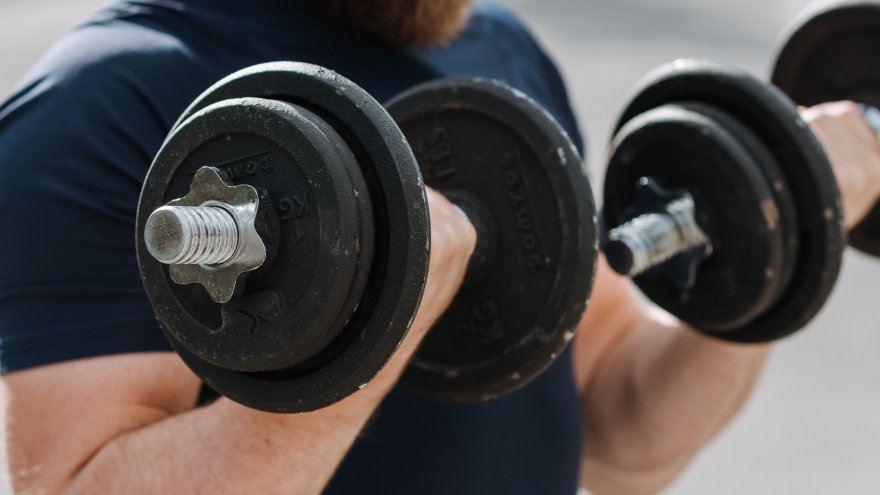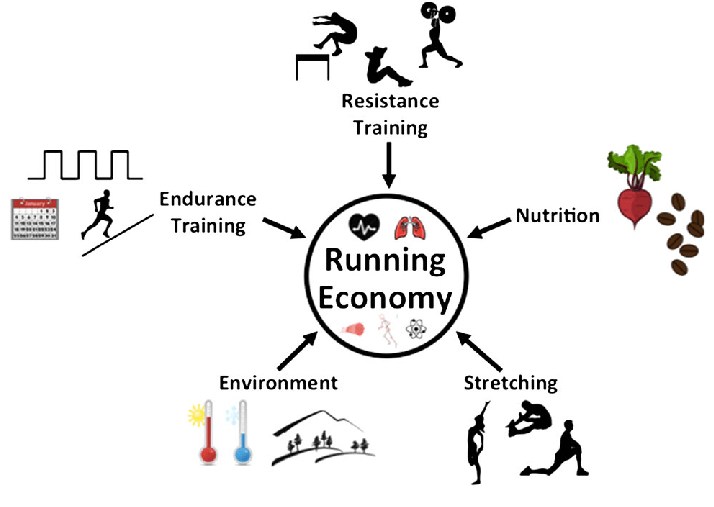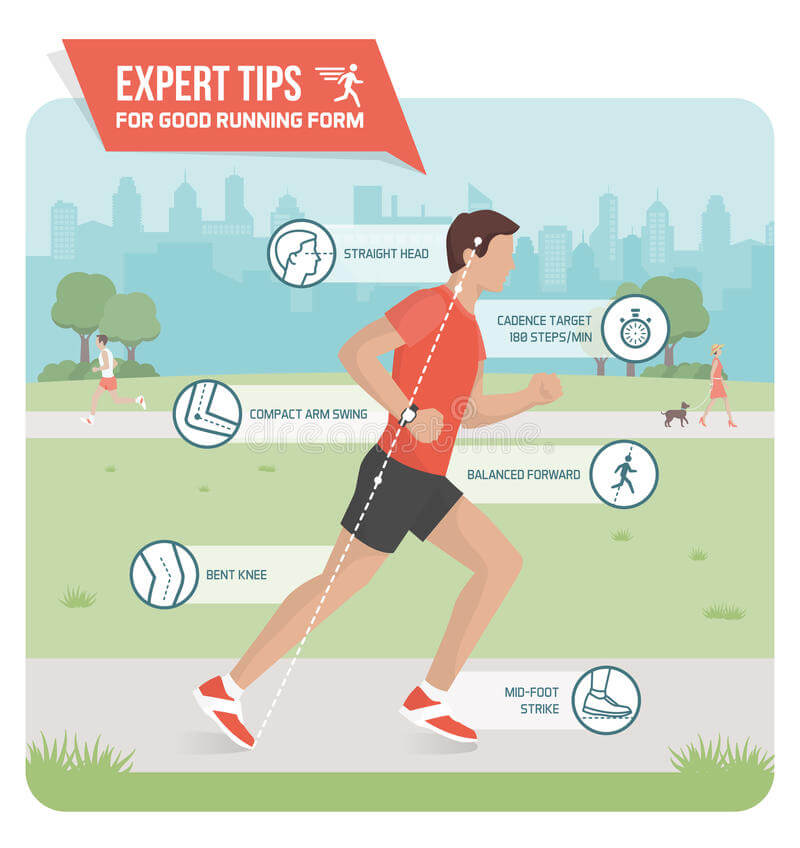The Benefits of Strength Training For Runners (Workout Program included)

While running alone is a great way to get cardio in and improves endurance and cardiovascular health, strength training provides additional benefits that can significantly enhance a runner’s capabilities. Strength training aims to progressively overload the muscles, causing them to adapt and become stronger over time.
Understanding Strength Training for Runners
Strength training, sometimes called weight training or resistance training, is a form of exercise that focuses on increasing muscular strength, power, and endurance.
It involves performing exercises that target specific muscle groups, challenging them to work against resistance, either external (weights, resistance bands) or internal (body weight).
Different Types of Strength Training
1. Resistance Training
Resistance training involves using external resistance, such as free weights (dumbbells, barbells), weight machines, or resistance bands, to provide resistance against which the muscles must work.
It allows for precise control over the resistance applied and enables targeting specific muscle groups.
2. Bodyweight Exercises
These exercises utilize the body’s weight as resistance and require no additional equipment. Examples include push-ups, squats, lunges, planks, and burpees.
Bodyweight exercises are convenient and can be performed anywhere, making them accessible for runners.
3. Plyometric Training
Plyometric exercises focus on explosive movements that utilize quick, powerful muscle contractions. They involve box jumps, squats, and medicine ball throws.
Plyometric training enhances muscular power and can improve running speed and explosiveness.
7 Strength Training Benefits For Runners
1. Increased Muscular Strength and Power
Strength training helps build and strengthen the muscles, particularly the lower body muscles used in running, such as the quadriceps, hamstrings, calves, and glutes. Stronger muscles generate more force, allowing runners to produce greater power with each stride.
This leads to improved speed, efficiency, and overall performance, ultimately making you a better runner.
2. Enhanced Running Economy and Efficiency
When you add strength training into your routine, you improve the coordination and synchronization of muscle groups involved in running. This also enhances the neuromuscular connections, making movements more efficient and reducing energy wastage.
As a result, runners can maintain a faster pace for longer periods without tiring as quickly.

3. Reduced Risk of Injuries
Running is a high-impact activity that significantly strains the muscles, tendons, and joints. If you have weak muscles and imbalances in strength, this can increase your risk of injuries, such as sprains, strains, and stress fractures.
Strength training helps strengthen the supporting muscles and connective tissues, improving joint stability and reducing the likelihood of injuries. It also helps correct the previously mentioned muscle imbalances you may be dealing with.
4. Preventing Overuse Injuries
Overuse injuries are a significant concern for runners, often caused by repetitive stress on muscles, tendons, and joints. Common overuse injuries in runners include shin splints, IT band syndrome, patellofemoral pain syndrome, and Achilles tendonitis.
Being sure to have a strength training routine plays a crucial role in preventing these injuries by strengthening the body’s supporting structures.
Strength training also helps improve bone density, which is particularly important for older runners who may be at a higher risk of osteoporosis or stress fractures.
5. Correcting Muscle Imbalances
Muscle imbalances occur when certain muscles are stronger or weaker than their opposing muscles and are common among runners. These imbalances can lead to a change in your biomechanics, inefficient movement patterns, and you being more susceptible to injuries.
Strength training on a regular basis allows runners to address these imbalances by targeting specific muscle groups. By strengthening weaker muscles and improving the balance between muscle groups, runners can improve their overall biomechanics and reduce the risk of overuse injuries.
6. Promoting muscle recovery and reducing soreness
Intense running sessions can leave muscles fatigued and prone to soreness. Strength training can help your muscles recover more quickly by increasing blood flow to the muscles, promoting the delivery of oxygen and nutrients, and removing metabolic waste products.
It also enhances overall resilience, enabling runners to bounce back more quickly from intense workouts or races.
7. Improved Running Form and Technique
Doing strength training, or lifting weights, especially exercises targeting the core and stabilizer muscles, helps improve posture, balance, and alignment.
It enhances core stability which is important for maintaining good form, reducing excessive movement, and preventing energy loss.

Strength Training Mental Benefits For Runners
Strength training also benefits the mind. It can boost confidence and self-esteem as runners witness improvements in their strength and performance.
When you strength train, it requires you to focus, be disciplined, and have mental toughness. These are all things that can carry over to running and enhance mental resilience during challenging workouts or races.
It also serves as a stress-relieving activity, aiding in overall mental well-being.
Designing a Strength Training Program for Runners
When designing a strength training program for runners, it’s important to include exercises that directly target the muscles and movements used in running.
Here are some key exercises to consider:
- Squats: Strengthen the quadriceps, hamstrings, and glutes, crucial for generating power and stability during running.
- Lunges: Focus on strengthening the quads, hamstrings, glutes, and hip stabilizers. They also help correct muscle imbalances between the left and right legs.
- Deadlifts: Work the posterior chain, including the glutes, hamstrings, and lower back. They promote overall strength and stability.
- Calf Raises: Strengthen the calves, which play a significant role in push-off power during running.
- Core Exercises: Include exercises like planks, Russian twists, and bird dogs to strengthen the core muscles, which provide stability and proper alignment while running. Core strength is very important for runners.
- Hip Exercises: Incorporate exercises such as hip or glute bridges and clamshells to strengthen the hip abductors and external rotators, helping with hip stability and injury prevention.
Balancing Strength Training with a Running Schedule
Finding the right balance between strength training and running is crucial to prevent overtraining and ensure optimal performance.
You should include strength training sessions 2-3 times per week, with 1 being the absolute minimum. If possible, be sure to allow for at least 1-2 rest days between strength workouts for muscle recovery.
It’s generally recommended to schedule strength training sessions when you have easy or rest days from running. This ensures that your muscles are not fatigued from a previous run, allowing you to give your full effort to strength exercises.
If you must perform strength training and a run on the same day, prioritize the key workout. For example, if you have a long run scheduled, perform strength training after the run to avoid compromising your running performance.
Though, some coaches will recommend leg training before your run so that you get a feel for running on tired legs.
Latest Articles
 Is Running on a Treadmill Easier Than Running Outside?Runners have their own preferences, whether it is treadmill running, running outside on the road, or exploring trails. So...
Is Running on a Treadmill Easier Than Running Outside?Runners have their own preferences, whether it is treadmill running, running outside on the road, or exploring trails. So... Is It OK to Use Trail Running Shoes on the Road?While trail running shoes can be used on roads, especially in situations where a runner encounters mixed terrains or pref...
Is It OK to Use Trail Running Shoes on the Road?While trail running shoes can be used on roads, especially in situations where a runner encounters mixed terrains or pref... How to Fix Sore Quads After Running?Rest, ice, gentle stretching, and over-the-counter pain relievers can help soothe sore quads after running. Also, ensure ...
How to Fix Sore Quads After Running?Rest, ice, gentle stretching, and over-the-counter pain relievers can help soothe sore quads after running. Also, ensure ... 10 Fruits With The Most Electrolytes to Replace Sports DrinksThese fruits are high in electrolytes such as potassium, magnesium, and calcium, essential for hydration, muscle function...
10 Fruits With The Most Electrolytes to Replace Sports DrinksThese fruits are high in electrolytes such as potassium, magnesium, and calcium, essential for hydration, muscle function...

